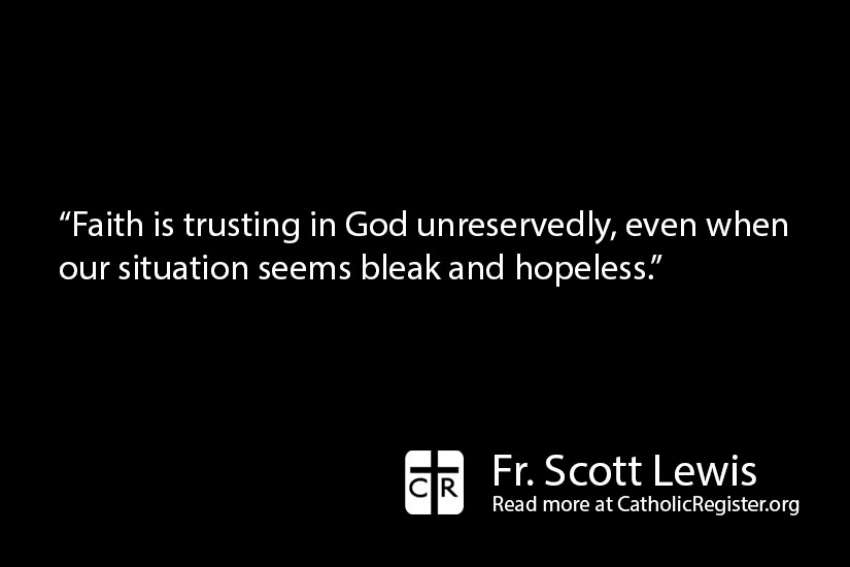We ensure that we have enough money and that we have made appropriate reservations and connections. While on the journey, we remain connected with those whom we have left behind.
Imagine a journey without any preparations, resources, itineraries, or plans — in fact, without even a destination. The thought of it is somewhat frightening, for it has all the ingredients for a disaster. But that is exactly what Abraham was asked to do.
Prompted by some sort of communication from a God he could not even name, he left homeland, culture, relatives, friends and support systems behind. He did not know the destination of his journey or how he would support himself on the way.
The divine presence had reassured him that if he were willing to let go of everything and trust without reservation, he would be blessed beyond measure. His name would live on; he would be the father of a great nation and the peoples of the Earth would be blessed in his name.
How did he know the voice was reliable and that he was not being deceived? Many people probably thought he was crazy to go off on some wild and dangerous goose chase without some sort of guarantee or supporting evidence.
Abraham was not a saint and his life took many twists and turns. Some of his actions might shock us today. His righteousness, however, lay in his unwavering faith and trust in God. Paul insisted that Abraham believed and trusted God, so at a time before the Law or religious regulations were given, this was counted as righteousness.
Abraham is exalted as the father in faith for Jews, Christians and Muslims. Faith is trusting in God unreservedly, even when our situation seems bleak and hopeless, and it has little to do with assent to doctrines or creeds. This is more difficult than it sounds, for humans like to know and to control, but this is a hindrance on any faith journey.
In our own time, many of the certainties and signposts have disappeared or become confusing. There are many confusing and contradictory voices vying for our attention. But faith is an inner spiritual GPS that will keep us focused on our trajectory to God’s kingdom.
One of the ways we relinquish control and turn our lives over to God is by our attitude. Our salvation is not something that we have earned or deserve — we cannot total up our points in God’s presence and demand entrance to Heaven. It is a gift, given through love, and our response should be humble and grateful acceptance. Even amid the suffering and struggles that life brings, we can rely on the power of God, the one who continually guides and graces us.
People often worship what they do not understand. Peter, James and John were overwhelmed by the transformation of Jesus that they had witnessed. The dazzlingly white garments of Jesus and His radiant face convinced them that something extraordinary had occurred but they were unsure of how to react.
Peter wanted to build three places of devotion so that he could place Jesus alongside Moses and Elijah. Humans tend to cling to an experience — even solidifying or institutionalizing it — in a desperate attempt to make it last. The voice from the cloud set them straight. Since Jesus was the Beloved Son, they were to listen to Him and, by implication, follow Him.
As they were coming down from the mountain, Jesus had to warn them to keep quiet until after the Resurrection. The mission of Jesus was vital and the hysteria that accompanies miracles and wonders could be a hindrance.
Not long afterwards, Jesus began warning them of His impending passion and death in Jerusalem. Denial and a superficial understanding of Jesus’ mission prevented them from comprehending this prediction or its implications. Only after their encounter with the Risen Jesus would they understand.
In His journey towards suffering and death, Jesus was an example of total trust in God the Father. This was a source of strength and inner peace.
As people of faith, we are asked to show the same trust as we confront our own struggles and difficulties.


